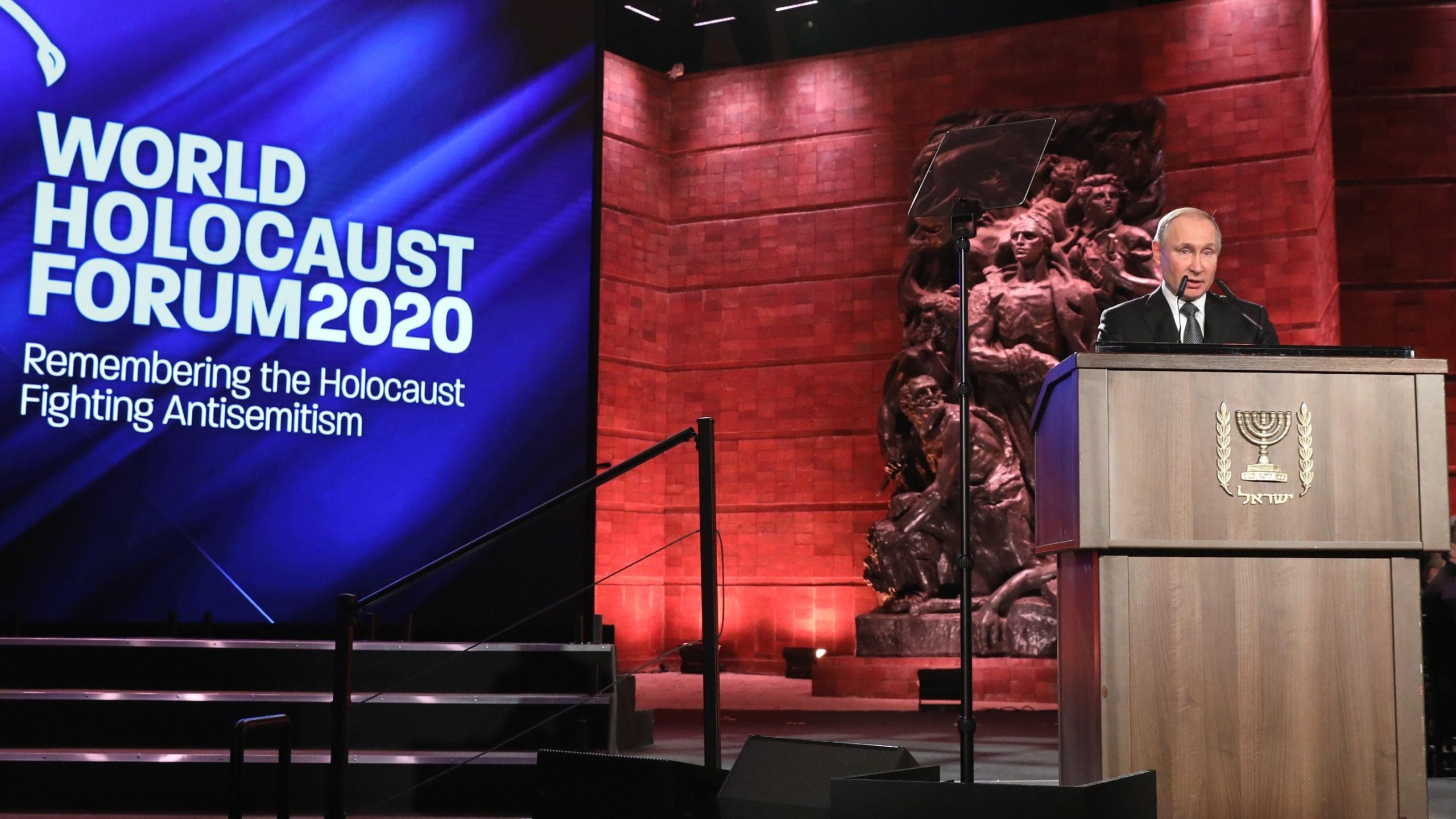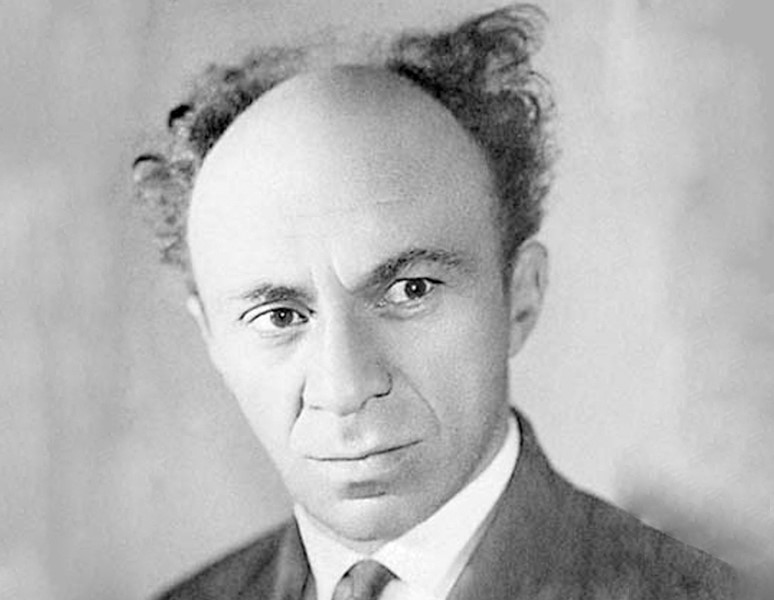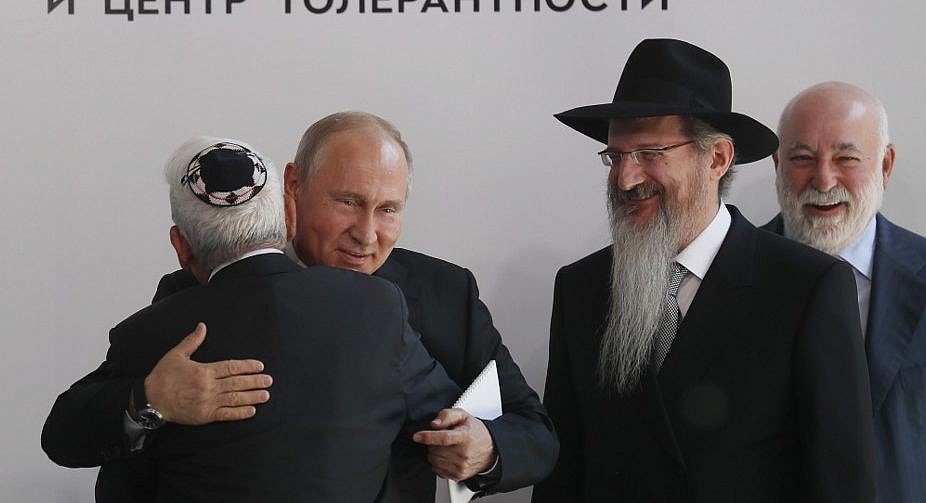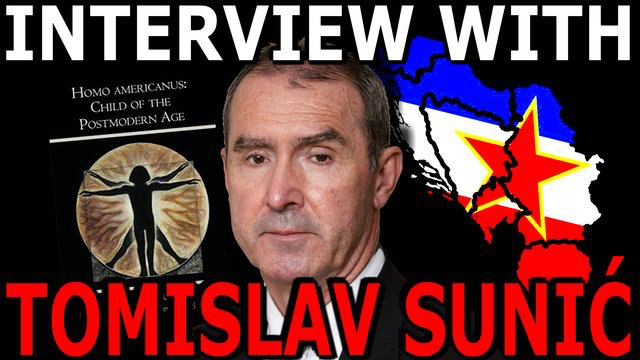Weapon of Mass Psychosis: Leftist Power-Lust and the Rhetoric of Racism
If you’re interested in war, here’s a question for you. What’s the world’s most powerful weapon? You might come up with some good guesses, but I suspect you’ll miss the right answer. So here are some clues. The weapon can wreck entire nations, not just individual cities. But it’s not a mega-bomb or a death-ray. Millions of people live in daily fear of this weapon. But it’s not a nerve gas or a lab-enhanced pathogen. And despite its power, it’s simple enough to be used by children and very stupid adults. In fact, its use is vigorously encouraged among those groups. And using it doesn’t cost them a thing!
Silence, censor and paralyze
So what is the world’s most powerful weapon? It’s a word. And the word is ‘racism’. Wielded as a weapon by low-IQ non-Whites and the treacherous White left, it has already done huge physical, financial, and psychological damage to the West. It is used to silence, censor and paralyze, crushing the discussion of obvious racial facts and all attempts by ordinary Whites to defend their own interests. By attacking those Whites as “racist,” the left has been able to justify massive transfers in wealth and resources from Whites to non-Whites who are allegedly persecuted and oppressed, even as those non-Whites commit endless violent and acquisitive crimes against Whites. Charges of “racism” have been hurled with powerful effect against anyone who questions the wisdom of mass immigration from the crime-plagued, corruption-rife, disease-ridden and tribalistic Third World. And against all scientists who have tried to investigate and expose the truth about innate racial differences in intelligence, psychology and creative potential.
 The word-weapon of “racism” in action during “mostly peaceful” BLM protests
The word-weapon of “racism” in action during “mostly peaceful” BLM protests
Yes indeed, the word “racism” has been a hugely effective and powerful weapon against White Western societies. And yet it’s a remarkably flimsy weapon, susceptible to some easy and obvious counter-measures. But the mainstream right refuses to use those counter-measures. Everything the mainstream right does in response merely strengthens the left and confirms the validity of “racism.” As I explained in “Jewish Loot and Neglected Fruit,” I don’t think this is because the mainstream right is inept or incompetent. I think it’s because the mainstream right is an ally of the left. It exists to betray Whites and serve the anti-White Jews who fund its politicians and reward them for their treachery. When Republicans in America say that “Democrats are the real racists,” they don’t simply fail to harm Democrats, they strengthen Democrats by accepting “racism” as a valid and coherent concept. It’s as though one side in a war is supplying weapons to the other side.
 Stonetoss foresees the future of rightist rhetoric
Stonetoss foresees the future of rightist rhetoric
So how should a sincere and effective right respond to leftist rhetoric about racism? First of all, the right should say that, as ever, the left is not interested in truth, equality or justice. No, the left is interested in power. By “truth,” it means lies. By “equality,” it means enslavement. And by “justice,” it means revenge. All of that is obvious in the endless accusations of “racism” it hurls against Whites and their civilization. The right should stress the incoherence and dishonesty of those accusations. On the one hand, the left claims that all humans are the same under the skin. On the other, the left treats Whites as uniquely and horrifically guilty of racism. But how can guilt attach to behavior that, on leftist principles, is determined by chance and historical contingency? If Whites and Blacks are, as the left insists, entirely the same under the skin, it automatically follows that Blacks are capable not only of exactly the same achievements as Whites but also of exactly the same misdeeds. If the historical and geographic dice had rolled in another way, it would have been Blacks who enslaved Whites and Africa that conquered Europe — just as it would have been Blacks who first walked on the Moon and Blacks who first split the atom.
The moralistic rhetoric of anti-racism
As I’ve pointed out in articles like “Destroy the Goy,” leftists don’t explain human history by genetics but by geography. The Jewish leftist Jared Diamond has repeatedly claimed that White achievements are owed to nothing but the blind fortune of being born on the right kind of continent. He says that “if Africa’s rhinos and hippos had lent themselves to domestication,” then “African cavalry mounted on rhinos or hippos would have made mincemeat of European cavalry mounted on horses.” In fact, as Gregory Cochran has pointed out, horses didn’t “lend themselves to domestication” either. Diamond’s pose as an objective, truth-seeking scientist conceals his real anti-White purpose. When Kevin MacDonald attended a talk by Diamond for the Skeptic Society at Cal Tech in the early 2000s, he saw “the crowd burst into applause” when Diamond “gleefully fantasized about Africa conquering Europe.” As MacDonald says: “it was a good introduction to the anti-White hatred that boils just below the surface of the moralistic rhetoric of anti-racism.”
MacDonald is right: leftists are indeed motivated by “anti-White hatred” and their anti-racist rhetoric is indeed highly “moralistic.” Anti-Pope Francis, the leftist currently usurping the throne of St Peter, announced that “Racism is a virus” on the United Nations’ so-called “International Day for the Elimination of Racial Discrimination” (21 March, 2021). In fact, it’s the International Day for the Demonization of Whites and was chosen to commemorate how “the police in Sharpeville, South Africa, opened fire and killed 69 people at a peaceful demonstration against apartheid laws in 1960.” South Africa and its neighbor Zimbabwe are excellent examples of how effectively the word “racism” has been used as a weapon of mass destruction. They were prosperous and civilized countries under White rule. Then the left began to screech that White rule was “racist” and that Blacks there were being exploited, oppressed and prevented from realizing their sky-high potential.
Slavery is “an indelible stain” on Whites
Blacks duly took over and revealed exactly how much potential they have. They didn’t sustain or enhance the civilizations that Whites had built: they wrecked them. Zimbabwe was once the bread-basket of Africa; today it’s the basket-case. South Africa is a swamp of violent crime, corruption and misgovernance. Except for a tiny kleptocratic elite, Blacks in South Africa and Zimbabwe are now far worse off than they were under White rule. As ever, leftists most harm those whom they claim to care about most.
Leftists will bring the same destruction to Western nations if they can, using the same verbal venom. Anti-Pope Francis is one example; Prince Charles, the leftist heir to the British throne, is another. He first claimed in a speech in Ghana that “The appalling atrocity of the slave trade, and the unimaginable suffering it caused, left an indelible stain on the history of our world.” He then claimed in a speech in Barbados that “the appalling atrocity of slavery forever stains our history.” Note that he chose his words carefully: he meant “British history,” but didn’t say that directly. He’s happy to heap guilt on ordinary British Whites and incite Blacks against them, but he doesn’t want to open the monarchy to claims for reparations. After all, who ruled Britain during the “appalling atrocity of slavery”? Who was enriched by “the appalling atrocity”? It was Charles’ royal ancestors, but he doesn’t intend to hand over any of the abundant wealth and property they bequeathed to him.
In other words, Charles wasn’t sincere: he was posturing in typical leftist fashion. He was also being dishonest in typical leftist fashion. In his speeches he didn’t mention the extensive and continuing history of slavery and human sacrifice in Black Africa. And he didn’t raise an obvious question: How can Britain and other Western nations be “stained” by something that, on leftist principles of history, they could just as easily have been victims of as the perpetrators?
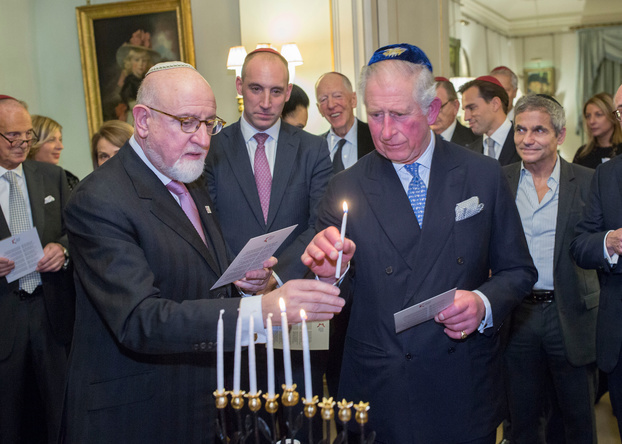 Censure for Whites, sycophancy for Jews: leftist traitor Prince Charles (right) lights Hannukah candles under the supervision of Britain’s Chief Rabbi Ephraim Mirvis
Censure for Whites, sycophancy for Jews: leftist traitor Prince Charles (right) lights Hannukah candles under the supervision of Britain’s Chief Rabbi Ephraim Mirvis
Indeed, Western nations were the victims: Muslim ships raided coastal settlements everywhere from Italy to Iceland and carried Whites off to perpetual slavery. But it was ordinary Whites who suffered that horrible fate. Charles’ royal ancestors were safe from abduction in well-guarded palaces, just as Charles himself is safe from Black and Muslim criminals today. He’s a traitor, but no-one on the mainstream right condemned his treachery or exposed the anti-White rhetoric in his speech. As I’ve pointed out before, while the European slave-trade is endlessly condemned and publicized by Western journalists, politicians, academics, film-makers and authors, the Muslim slave-trade, which was bigger and longer-lasting, is almost ignored. Even the leftist author Jeremy Black, in his book Slavery: A New Global History (2011), is struck by this contrast in attitude: “[The] period of Mamluk rule [in Muslim Egypt] was roughly equivalent in length to that of slavery in the USA, and it is an interesting sign of relative concerns that the attention devoted to slavery in the Mamluk empire and the USA is as a drop of water compared to an ocean.” (ch. 1, p. 33)
Self-righteous psychosis
Has anyone ever claimed that “the appalling atrocity of slavery forever stains Egyptian history”? Or Muslim history? Or Jewish history? Of course not: that kind of moralistic rhetoric is applied only against Whites and Christians. But the rhetoric is not just self-righteous: it’s self-gratifying too. A certain kind of White leftist obviously derives great pleasure from public displays of anti-Whiteness. Here’s a good example:
Glasgow authorities have apologised for the city’s role in the Atlantic slave trade, saying the “tentacles” of money from the practice reached every corner of Scotland’s biggest metropolis. … “Follow the Atlantic slavery money trail and its tentacles reach into every corner of Glasgow,” council leader Susan Aitken [of the SNP] told colleagues at a meeting on Thursday. “It’s clear what this report tells is that the blood of trafficked and enslaved African people, their children and their children’s children is built into the very bones of this city.” …
A total of 62 Glasgow streets are named after slave owners who built their fortunes on tobacco plantations. These include Buchanan Street and Glassford Street, named after the “tobacco lords” Andrew Buchanan and John Glassford. James Watt, whose improvements to the steam engine drove the Industrial Revolution, was personally involved in trafficking a black child for sale to a family in north-east Scotland, the report said. …
Glasgow council’s chief executive, Annemarie O’Donnell, said the city acknowledged that black, Asian and minority ethnic citizens wished the council to “recognise the historic legacy of chattel slavery based on the exploitation of enslaved Africans”. The report, by the University of Glasgow academic Stephen Mullen, who has written extensively on the city’s links to slavery, was “a step towards healing the anger and frustration” felt by these citizens, she added. (Glasgow apologises for role in slave trade, saying its ‘tentacles’ are in every corner of city, The Guardian, 1st April, 2022
 The overweight and unattractive SNP politician Susan Aitken poses with two non-Whites
The overweight and unattractive SNP politician Susan Aitken poses with two non-Whites
That story appeared in the Guardian on April 1, 2022, but it wasn’t an April Fool’s joke. The overweight and unattractive leftist Susan Aitken was entirely serious in her overwrought rhetoric: “the blood of trafficked and enslaved African people, their children and their children’s children is built into the very bones of this city.” Indeed, I detect psychosis in that kind of language. As I’ve said before: leftism is better regarded as a psychiatric disorder than as an ideology. That’s why you can describe the concept of “racism” as a weapon of mass psychosis. It induces irrational and destructive behavior in millions of White leftists, who work to destroy their own race and nations on behalf of non-Whites.
They’ll kill us to cure us
Susan Aitken is one small but significant example. She’s a member of the Scottish Nationalist Party (SNP), which defends Scotland in the same way as the bigger Labour party defends the working class. That is, the SNP betrays and harms Scotland just as Labour betrays and harms the working class. Look at how Aitken accepts and amplifies a report that attacks the Scottish hero James Watt. He has traditionally been celebrated as an emblem of the hugely disproportionate contributions made by Scots in the fields of engineering, science, medicine, literature and philosophy.
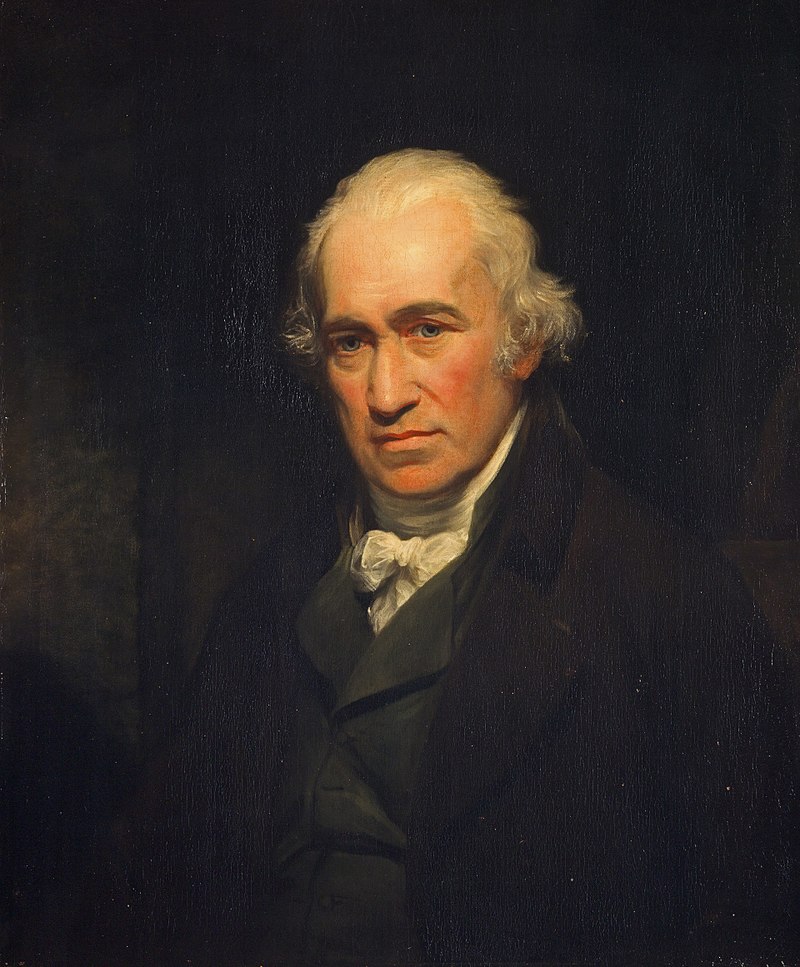 Scottish hero James Watt, a giant hated by modern pygmies
Scottish hero James Watt, a giant hated by modern pygmies
That’s precisely why Scottish leftists like Susan Aitken want to drag him down and besmirch his memory. He was a giant; they are pygmies. He could create; they can only destroy. By traducing the giants of Scottish history, they gratify their own power-lust. Just like leftists everywhere else, leftists in Scotland need to pretend that their nation is diseased in order to justify the cure of leftist control. As in South Africa and Zimbabwe, the cure will prove far worse than the alleged disease.


